Introduction
The business world of today is a practical example of hard-line competition. The main cause of these types of aggressiveness is maybe the newly shaped borderless markets all over the world. The total world is now a big market and thus named as global market. Companies, Like Boeing, are also facing this sort of competition. All the companies large or small are taking various types of strategies to overcome the competition. Among these three the most important strategy is the business-level strategy. These are the strategies that are made for response to the sudden or normal changes in the industry. These strategies help Boeing in many ways. The further sections will discuss these facts.
Short Looks of the Boeing Company
Boeing is one of the leading aircraft manufacturers since 1930. It produces the highest amount of commercial and military aircraft worldwide. They have their operations all over the world. William Boeing was the founder of this company, but at first, it was just a timber-oriented manufacturer. It became famous in the 1940’s war days when the US army requested to rapid production of B-17 war aircraft. But after the war, the army canceled their huge amount of orders and thus Boeing faced a humbling situation and cut-offs its almost 70,000 employees.
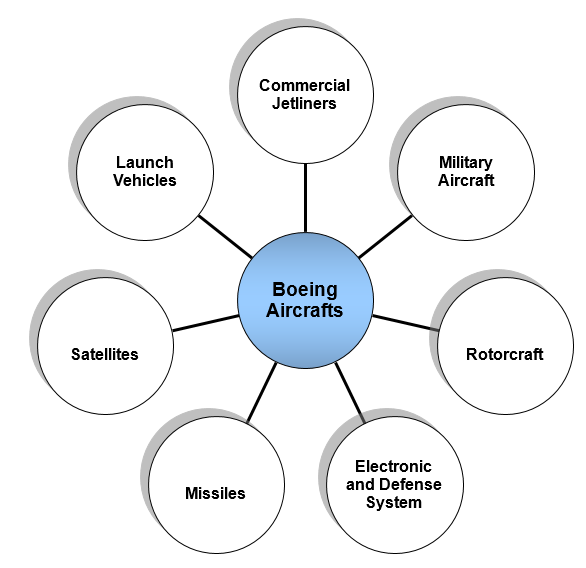
During the cold war, it again starts to get military orders but at the time of the recession in the 1970s, it did not get a single domestic order. In the 1970-71 year it again cut off its huge amount of workforce. But, Boeing overcome this period with great patience and after the recession, it again started to produce both military and commercial jetliners. In this time the rise of fuel prices pursues Boeing to innovate faster and more energy-saving aircraft. In 1992 Boeing earned the contract to primly make the first international space station. In the 1990s and afterwards, Boeing continuously merged with various types of companies.

There are mainly three sectors of Boeing’s aircraft productions. Under the commercial sector it has commercial airplanes, airport technology group, aircraft trading unit, connation and air traffic management service. Integrated defense systems (IDS) have shared service group, microelectronics and phased array antenna centre and solid state electronics development unit. Military aircraft and missile system space and communication have some military production and aerospace research units.
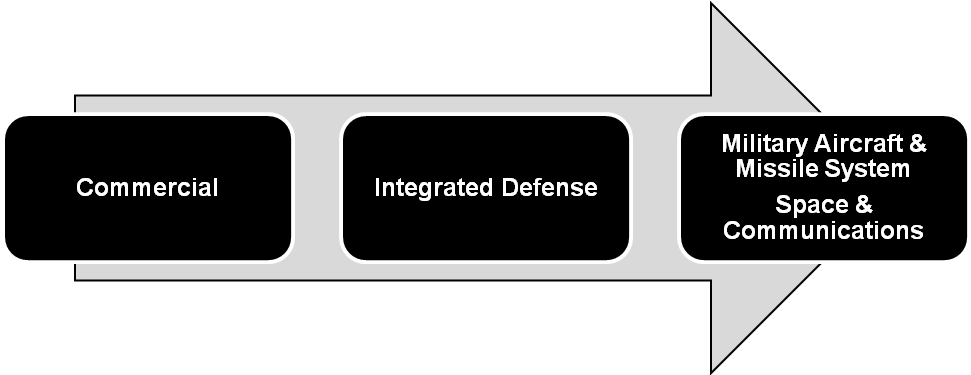
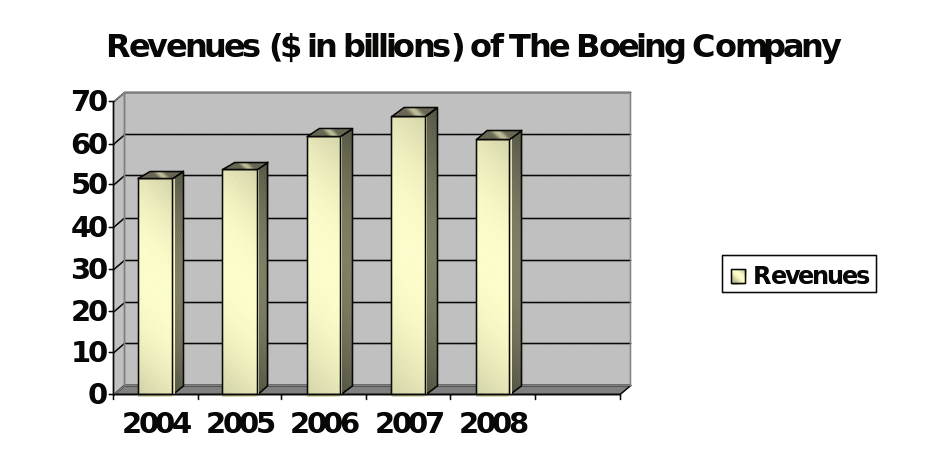
PEST analysis
Political Factors
The recent downsize of economy affected Boeing’s ultimate financial strength. Some political influence triggered the instability of Boeing. Again some legal proceedings are also took place since 2000 which keep pressure for Boeing’s products. Some of these are BSSI- Thurya litigation, BSSI- Superbird 6 litigation, santa Susana field laboratory environmental crisis and so on. Boeing trades with the symbol BA in New York stock exchange and has also operated in many other famous stock exchanges.
Economic factors
Now global economy is facing a downsizing tendency. US economy is now going through a tough time. Thus, Boeing is also facing problems like cash and asset management related problems. The strike of 2008 forced Boeing to a negative cash flow. The strength of US dollar is continuously reduced against the Euro and other currencies. This situation forced to a loss in one week to another and the following figure shows that the net earning has decreased from previous year. Boeing was always aggressive in managing its costs and investment. But for these economic factors it had to reduce its budget for discretionary, capital spending and overall pension and employee welfare budget.
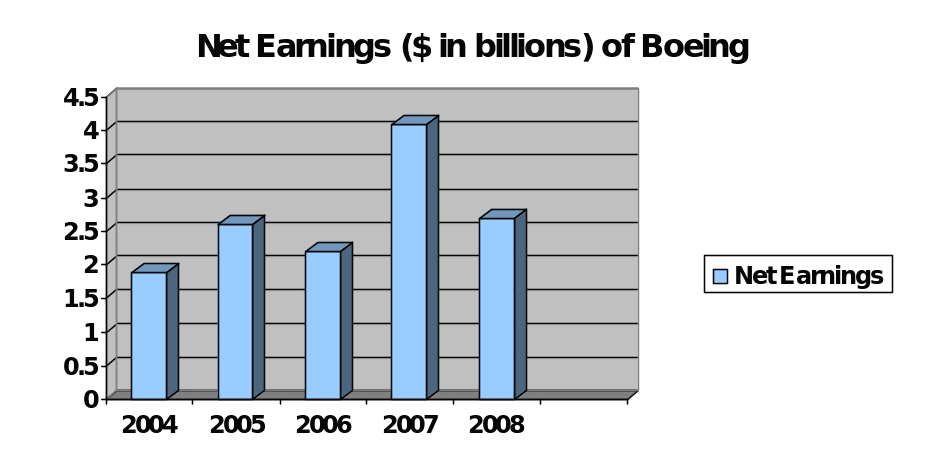
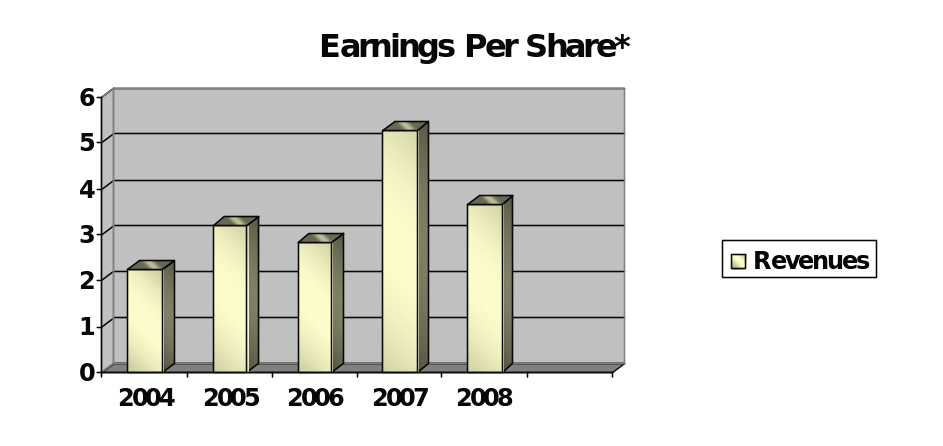
Socio-Cultural Factors
The US army and some other countries have regularly bought war aircrafts from Boeing. Commercial airlines are also key customers of Boeing. As because the customers of Boeing are of different kinds, the operation and productions of Boeing are thus depends on the different socio-cultural patterns. Some countries and airlines demand for large and exclusive aircrafts. But the developing countries and other non-developed countries government owned air service or commercial airliners seek small and low priced aircrafts.
Technological Factors
The technologies are changing in every moment. At first Boeing’s aircrafts were made of timbers. And now a days Boeing is using Titanium and many other alloy of different matters. But the most important technological factor is the advancement of computer aided technology. Some newly developed aircrafts of Boeing are uniquely using these new technologies.
SWOT Analysis
There are four factors related with any SWOT analysis of any company, consists of Strengths, Weakness, Opportunities and Threats, which are shown in figure below:
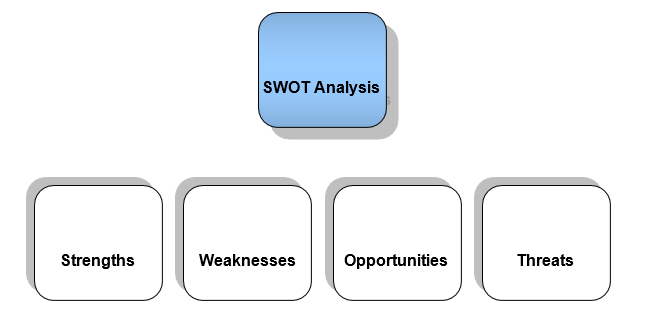
For Boeing Company, the lists of SWOT analysis are discussed below:
Strengths
As a pioneer in the field of aerospace, Boeing Company has some major strengths of are discussed below:
- Expansion: Boeing Company is extended its products in commercial airplanes, integration of defense systems, military and missile systems, and also space and communications with more stability.
- Good Relation with Customers: Boeing Company is making good relation with passengers and crew in their working environment, and also having it with available information in websites.
- Improvements of Air Traffic Systems: Boeing is helping airports in using proper and effective communications to having safe journey without air traffics.
- Global Presence: It has companies in many countries worldwide to provide services.
- Reputation and Implication: In 20th century, Boeing has a trusted company and being on of the top commercial airline provider in the world.
Weaknesses
Boeing Company also has to face some internal weaknesses, which are:
- Excess Diversification: In some extents, Boeing is undertaking many activities, which creates errors and complications in communication.
- Less Stability of Employees: Boeing Company has 159,300 people in worldwide, which is not sufficient.
- Less Performance in Stock: From past records, Boeing Company has decreased stock price level which is down from $30.62 to $26.40.
Opportunities
In the part of opportunities, Boeing Company has some external opportunities, which are:
- War: As Boeing is contracted with US in providing weapons, aircrafts, and many more integrated defense systems, it is profitable way for Boeing when US started war with Iraq.
- Expansion of Global Reserves: More countries, also US are invested in Boeing products and services with the investments in stock.
- Better Economy Systems: If the economy systems of Boeing would get worst, then Government would provide recovery systems.
- Budget Proposal of Government: Congress are approving $75 billion bill for the war continuing.
Threats
With some opportunities, Boeing Company also has some external threats, which are:
- Increasing of War: With the increasing of ground war, the defense weapons and aircrafts could be decreased.
- Columbia Explosion Involvement: Boeing is working with NASA and agreed to send Columbia into space, which is a threat for Boeing.
- Limited Budget of Defense: The limited budget can be allocated to certain products.
- Commercial Industry: Most of companies can not afford to buy new planes after the 9/11 situation.
- Safety of Nation: The nation’s confidence on Boeing is being unstable in sense of security.
Resource and Capabilities of Boeing Company
Resources means the instruments like human or machinery available in the company and capabilities means the company’s skill to coordinate resources in the production system of the company.
As a leading aerospace company, Boeing is the largest manufacturer of commercial jetliners and aircrafts for military with sufficient capabilities of rotorcraft, electronic and defense systems, missiles, satellites, launch vehicles, advanced information systems and communication way of systems. With its proper resources and proper capabilities to use these resources are being it as an exporter in leadership and innovation in this business.
Its broad range of capabilities in products and services meet the customers’ needs with new, efficient members in staffs, military platforms, defense systems, and network based operations with the help of advanced technologies. Its resources are capable in creation of new e-enabling airplanes with financial solutions for customers. For an example, Boeing Integrated Defense Systems (IDS) has $23 billion capabilities in defense, communication and liberty.
To manage resources and capabilities, Boeing has taken strong action in program management process with resources and technical expertise with the change of leadership to better performance of the company. To manage it, they have to maintain the production range in new and existing airplane programs with the help of skilled employees and proper resources. The potential effect and willingness are making the Boeing Company away from extra budgetary resources and helping customers in reduced costs with capability driven solutions.
Business- Level Strategy of Boeing
Business level strategy is a strategy to assess in a specific product market with an integrated and coordinated set of commitments and events which a firm can apply for achieving a complete competitive advantage by developing core competencies. These business level strategies are affected by and consist of many other strategies.
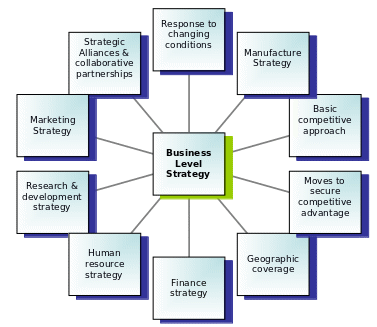
Generic Business Level Strategy (MR)
According to Michael Porter (1985) there are three generic business level strategies. These are:
- Cost leadership
- Differentiation
- Focus
These three are differentiated for their different attitudes towards competitive market advantage and the scope of the competitive market.
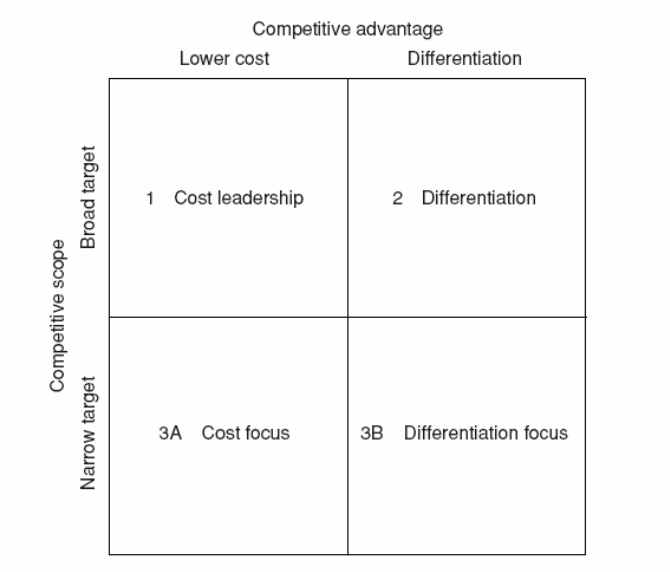
Now these three generic business level strategies will be discussed briefly.
Cost leadership
Cost leader is the producer who produces at the lowest cost within the industry. Cost leadership is a strategy where the firm offers the lowest cost of offering which make the product different from the competitors. The objective of this strategy is to have a sustainable cost advantage over the competitors. The basis of these is to use the lower cost edge. Besides its aim is to make instable the under price rivals and gain a good market share and in a going price to gain a high profit margin.
The characteristics of cost leadership are:
- The corporate culture is cost cognizant.
- Employees participate in a effort to controlled by cost
- All time the efforts are directed to the benchmark costs.
- There is Intensive security to request of budget.
- The continuous cost improvement has been done through promotion of different programs.
Differentiation
This is a strategy where a firm produces their products with some unique characteristics which completely differentiate the products with its competitors. That is, in this strategy the product features bring the competitive advantages. The objective is to attract the customers and to refuse the competitor’s brand for some differentiating products. In this case to find out the differentiating features which create values to the customers are important for the success of the strategy. The competitive advantage can be come from four sectors.
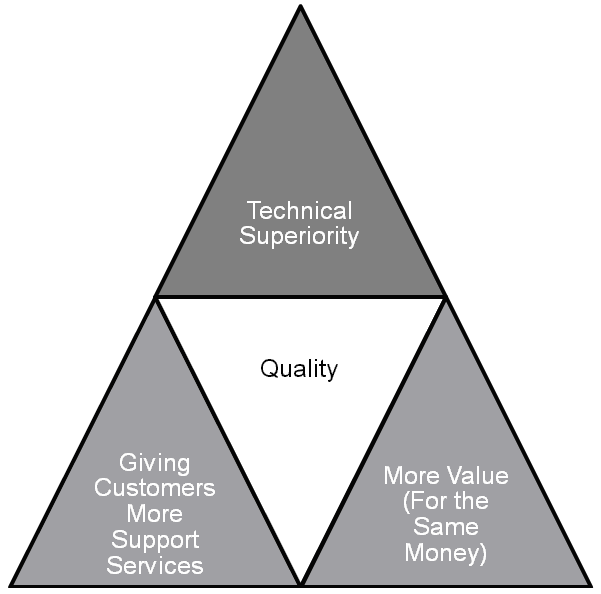
The characteristics of this strategy is to achieve uniqueness which the customers will think as valuable and the competitors find hard to copy or match the features. There are many ways to differentiate a product.
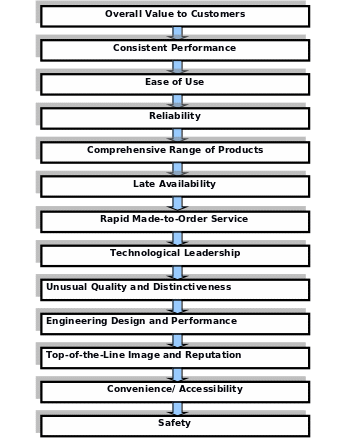
Focus
This is a strategy where the firm targets a portion of a market that can be a certain group of customers or a geographic location or a certain feature of a product to make some competitive edge and figure out a niche positioning by concentrating those targeted portion to achieve competitive advantage over the competitors. The objective of this strategy is to serve the customers better than the competitors.
To choose a market niche or a suitable focus area is the most important but difficult tasks. But the most difficult thing is to identify the need or demand of the targeted group and to design the product according to that. This strategy has two characteristics. These are:
- A low cost strategy: Offer lower cost than of the competitors.
- A differentiation strategy: Offer some unique features to the customers
Among these three Boeing should take the cost leadership strategy.
Advantages of Business-Level Strategy
To take strategies which are business centered can give the ultimate output of a firm. The primary advantage of business level strategy is to gain a more powerful, sustainable and suitable competitive advantage within the industry and the market. The competitors are not a threat for these competitive advantages. Business level strategies ensure a stable position and some loyal customers who remain with the product for a long run. Thus the profit maximization can be possible for the firm. The advantages are:
- Having the cost advantage and have suitable position over the competitors.
- These strategies ensure powerful suppliers. Thus if the price of the inputs are increased or decreased, the production will not be affected.
- These strategies increase the bargaining power of a firm with the suppliers.
- The firm can be capable to reduce price in any time.
- These strategies are helped to act as a barrier to entry for new entrants.
- A firm can be able to have protection against the competitors.
- For these strategies a firm can gain higher bargaining power over the customers.
- These strategies ensure loyalty of the customers.
- The firm can be able to stay close to the customer and can easily get the information about their need.
- The product features are changed frequently to match with the customer demand. Thus the product quality becomes developed.
- The actions of these business level strategies are concentrated to the customers. So customers become motivated and purchase the product frequently.
Disadvantages of Business-Level Strategy (SP)
Besides business level strategies have some disadvantages also. These are:
- Competitors may lower the cost structure and thus the overall industry may face loss.
- Rivals may duplicate the firm’s process.
- If the firm continuously reduces the cost to back the competitors, the demand of the firm’s product may be reduced.
- To identify a suitable market segment is difficult. So, some times a lot of cost accrued to research the perfect market segment.
- To lower the cost, sometimes the firm cutoffs its employees and thus creates unemployment.
- It is also difficult to maintain distinctiveness in the eyes of the customers for the long run.
- The firm faces difficulties in maintaining premium prices.
- These strategies may keep pressure on the idle operational activities.
- Sometimes to reduce cost of production, firms use lower quality raw materials. Thus the qualities of the product are decreased.
Appropriate Choice of Strategies
To comment about the appropriate strategy of Boeing at first we have to look at the financial position of company. Here the last year’s financial highlights are given:
The financial margins are become less than 2007 because of the strike in the commercial airplane production in last year. But it still has revenue of 60,909 million US dollars.
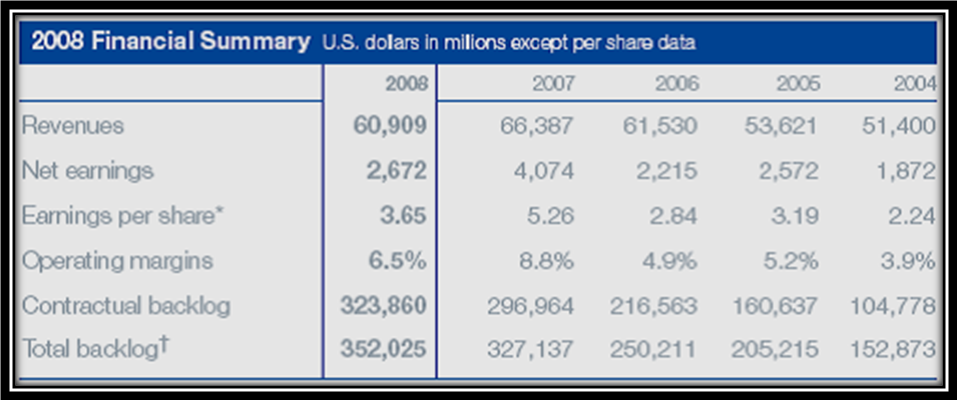
Boeing should follow the cost leadership strategy. It is the appropriate strategy for Boeing because the company is now facing huge competition from its competitors like Airbus, Lockheed Martin Corp and Northrop Grumman Corporation. Due to the aircrafts are premium products, the customers are price sensitive. In case of commercial customers, some of them seek the highest features for lowest price. So, if Boeing wants to overcome the turmoil of the last year, it should take cost leadership strategy.
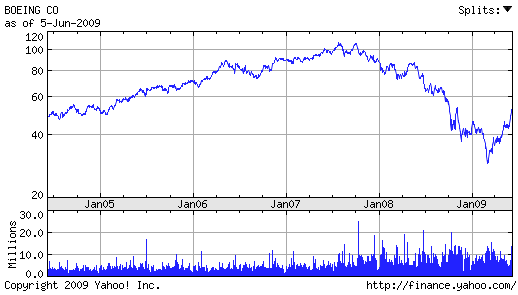
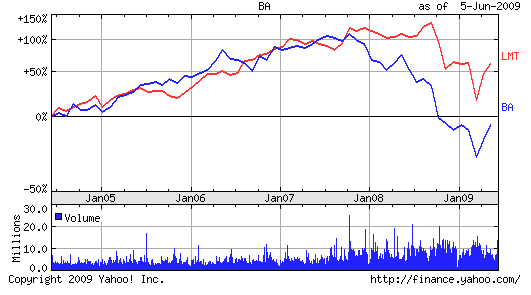
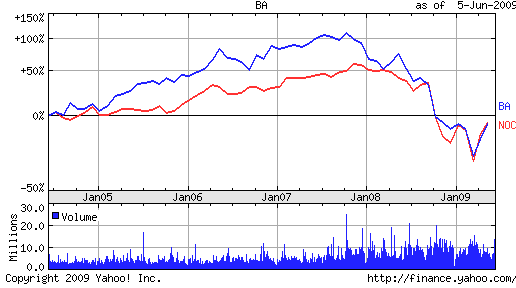
From the above figure, it can be said that for global financial crisis its profits has decreased from 2007 but its competitor major Lockheed Martin Corp is now in more strong position than Boeing, therefore, it should considers Lockheed’s strategy.
Corporate Governance
Codes of Ethics
Boeing is now strictly following some codes of ethics. They have recently adopted three codes. These are:
- Ethical codes and business conduct rules for the board of directors of Boeing: According to this code, there is a ban to have family relationships among the executive officers, directors, or nominees of the directors.
- Ethical code of conduct for financial directors and CFO
- General codes of conduct: These are applicable for all the employees.
The shareholders suggest about the qualified candidates for the Governance, organization and nomination committee. The candidates apply to the committee for becoming the member of board of director. This committee selects the candidates for board of directors. After that the members of board of director is elected through an election.
Recommendation
There are some recommendations for Boeing.
- Boeing should take cost leadership strategy. To become a cost leader, Boeing must try to get the supply of raw materials in a less cost from the suppliers. For this, Boeing can seek new suppliers and new supply chain management system.
- In case of military aircraft, Boeing can use sophisticated technological tools. Boeing has a better laboratory to innovate unique technologies. So, in this case, they have competitive advantage.
- Boeing has good customer relation. But because of their low cost offering, they need to enhance this customer relation. Boeing should convey the message to its customer that, their low cost offerings does not mean low quality.
- Boeing has international customers. To have access to all countries, Boeing must design some diversified and small or medium type of aircrafts. Thus, the developing or poor countries also get their service and become their loyal customers.
- Boeing must stop their employee cutoffs tendency. For this reason, Boeing has become affected and termed as a cause for unemployment.
- Boeing should use a fixed budget for their different types of operations in different sectors. Boeing must follow their budget accordingly.
- Boeing must consider their present stock performance with a continuous monitoring. Shareholders at different countries are assets but they can be a threat to Boeing in any time.
Conclusion
Boeing is world’s number one aircraft producer. But the competitors are also now coming with their full strength to do better than Boeing. Besides, present economical condition keep pressure to the overall operations of Boeing. For these reasons, Boeing must take proper business-level strategies. Cost leadership strategy will help Boeing to get some stable competitive advantage.
Bibliography
Campbell Jordan, Ennis Eleanor, Lauten Russell & Musson Elizabeth, The Boeing Company: Forever New Frontiers. Web.
Dobson Paul, Starkey Ken, & Richards John, Strategic Management: Issues and Cases, 2nd edition, Blackwell publishing, Malden, ISBN 1-4051-1181-X.
Kotler, Philip & Kevin Lane Keller, Marketing Management, 12th edition, New Jersey: Pearson Prentice Hall, ISBN 0-13-145757-8, 2006.
Gallagher, Business Level Strategies. Web.
Hill, Charles W.L., and Jones, Gareth R., Strategic Management, 8th Edition, Boston: Houghton Mifflin Company, 2008.
The Boeing Company, The Boeing Company: 2008 Annual Report.
The Boeing Co. Boeing co. – All News and Analysis. Web.
Yahoo Finance, Basic Chart of the Boeing Company. Web.
Yahoo Finance, The Comparison between Lockheed Martin Corp & the Boeing Company. Web.
Yahoo Finance, The Comparison between Northrop Grumman Corp & the Boeing Company. Web.